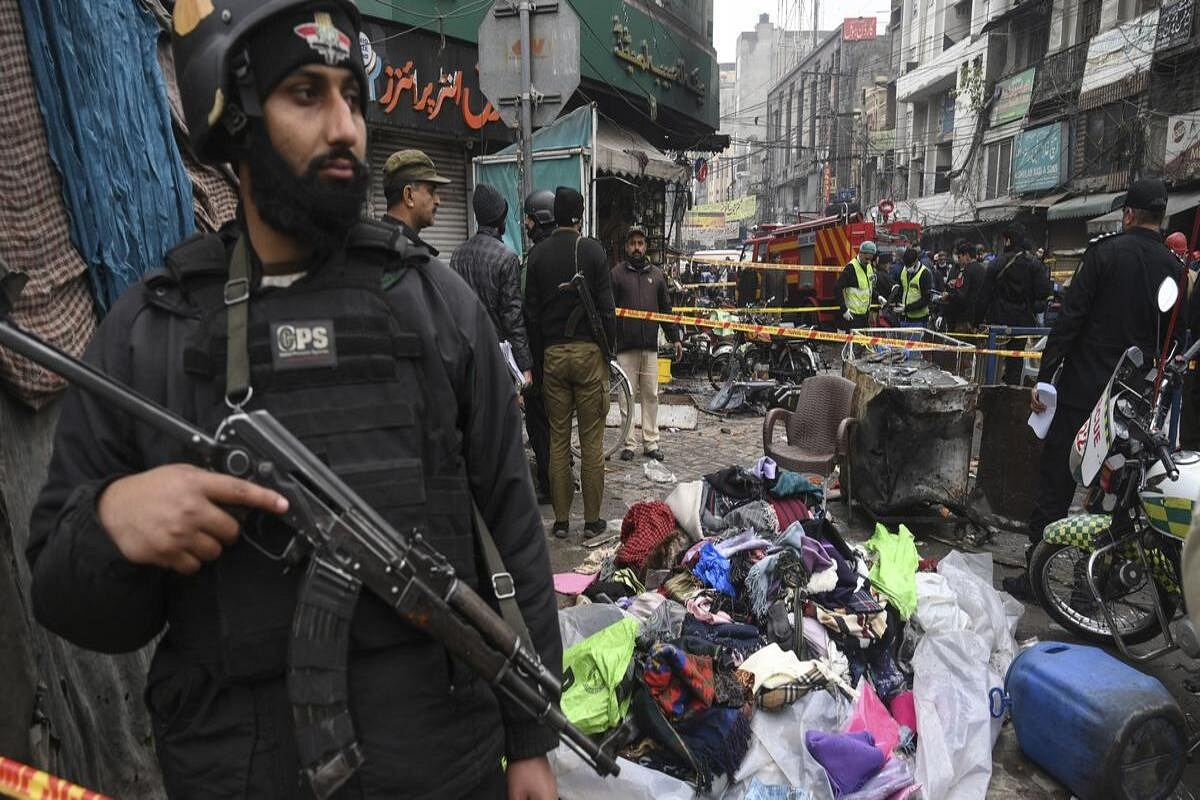World
TTP Launches Attack On Pakistan Army In Province Bordering Afghanistan, On The Anniversary Of 1965 India-Pakistan War

Terror attack in Pakistan. (Representative Image @AFP)
The Tehreek-e-Taliban Pakistan (TTP) has launched a terror attack on the Pakistani Army in the northwestern province of Khyber-Pakhtunkhwa, killing six soldiers.
According to reports, this attack occurred in the Bamborat area within the Chitral district, the largest district in the Khyber Pakhtunkhwa province, bordering Afghanistan.
The TTP reportedly targeted two military checkpoints, resulting in the deaths of reportedly six soldiers, in close proximity to the Afghan border.
While reports of these attacks on Pakistani installations have emerged, Pakistan's military authorities have not yet issued a response. However, multiple videos depicting the attack are circulating widely on social media, particularly on platforms like X (formerly Twitter).
This attack comes on the anniversary of the 1965 India-Pakistan war, commemorated in Pakistan as National Defence Day.
On this day (6 September) 58 years ago, the Indian Army on the orders of Indian Prime Minister Lal Bahadur Shastri launched a counteroffensive by crossing the International Border in Punjab opposite Lahore, following Pakistan's Operation Grand Slam and Operation Gibralter in the erstwhile state of Jammu and Kashmir (J&K).
This offensive was launched following the Pakistani Army attack on the Chamb sector of Jammu (on 1 September) also known as Operation Grand Slam, which was itself launched in reply to the capture of Haji Pir Pass by the Indian Army.
The genesis of these opeartions was the Pakistan Army's Operation Gibralter when Pakistani soldiers, disguised as guerrillas, infiltrated J&K in early August of 1965, with the aim of inciting the local population against India.
In response, the Indian Army effectively contained the infiltrators, capturing their infiltration and supply routes, including the strategically significant Haji Pir Pass.
The war ultimately concluded in a stalemate, although India held the upper hand when the ceasefire was declared.
Historically, this war is often regarded as an Indian victory since India was successful in thwarting Pakistan's political and military objectives, particularly their attempt to gain control of Jammu and Kashmir through military means.
Support Swarajya's 50 Ground Reports Project & Sponsor A Story
Every general election Swarajya does a 50 ground reports project.
Aimed only at serious readers and those who appreciate the nuances of political undercurrents, the project provides a sense of India's electoral landscape. As you know, these reports are produced after considerable investment of travel, time and effort on the ground.
This time too we've kicked off the project in style and have covered over 30 constituencies already. If you're someone who appreciates such work and have enjoyed our coverage please consider sponsoring a ground report for just Rs 2999 to Rs 19,999 - it goes a long way in helping us produce more quality reportage.
You can also back this project by becoming a subscriber for as little as Rs 999 - so do click on this links and choose a plan that suits you and back us.
Click below to contribute.
Latest